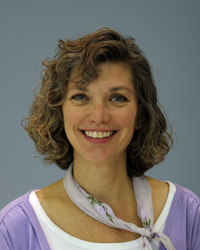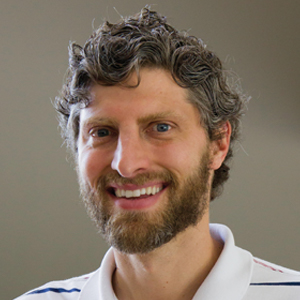Kim Orth’s efforts ‘nothing short of dazzling’
Kim Orth, professor of molecular biology at the University of Texas Southwestern Medical Center at Dallas, has been named the winner of the American Society for Biochemistry and Molecular Biology Young Investigator Award.
 Kim Orth
Kim Orth
About the award
The ASBMB Young Investigator Award (formerly the ASBMB/Schering-Plough Research Institute Award) recognizes outstanding research contributions to biochemistry and molecular biology. The recipient must have no more than 15 years postdoctoral experience. The award consists of a plaque, $5,000, transportation, and expenses to present a lecture at the 2012 ASBMB annual meeting.
Orth received the award in recognition of her seminal discoveries of the molecular mechanisms that virulence factors from pathogenic bacteria (including those responsible for the plague and food poisoning) use to manipulate host cell signaling systems to promote infection. These bacterial factors disrupt the host’s defense mechanisms, allowing the bacteria to survive and replicate by tipping the balance of homeostatic signaling pathways in favor of the invading pathogen.
For Eric Olson, also from UT-Southwestern, Orth’s work “represents a unique convergence of biochemistry and cellular biology with the basic mechanisms of infectious disease.” Jack Dixon, vice president and chief scientific officer at the Howard Hughes Medical Institute, agreed. “Kim’s efforts were nothing short of dazzling,” he said.
“I feel extremely honored to win such a prestigious award for our scientific endeavors,” said Orth. “I credit much of this success to the skilled people I have had the privilege to mentor, the first-class, collegial environment at UT-Southwestern, and my supportive friends and family.” A scientist to the bone, Orth also made sure to credit the “clever bacterial pathogens that evolved magnificent mechanisms to manipulate cellular signaling and who make science so much fun.”
After an undergraduate career at Texas A&M University, Orth received her master’s in biological chemistry at the University of California, Los Angeles, before moving to UT-Southwestern, where she spent three years as a research associate before beginning her Ph.D. program, which she finished in 1995. After a postdoctoral fellowship at the University of Michigan, Orth returned to UT-Southwestern in 2001, where she has been ever since.
Orth will receive her award during the Experimental Biology 2012 conference in San Diego, where she will deliver an award lecture. The presentation will take place at 2:55 p.m. April 24 in the San Diego Convention Center.
Enjoy reading ASBMB Today?
Become a member to receive the print edition four times a year and the digital edition monthly.
Learn moreGet the latest from ASBMB Today
Enter your email address, and we’ll send you a weekly email with recent articles, interviews and more.
Latest in People
People highlights or most popular articles

Sketching, scribbling and scicomm
Graduate student Ari Paiz describes how her love of science and art blend to make her an effective science communicator.

Embrace your neurodivergence and flourish in college
This guide offers practical advice on setting yourself up for success — learn how to leverage campus resources, work with professors and embrace your strengths.

Survival tools for a neurodivergent brain in academia
Working in academia is hard, and being neurodivergent makes it harder. Here are a few tools that may help, from a Ph.D. student with ADHD.

Quieting the static: Building inclusive STEM classrooms
Christin Monroe, an assistant professor of chemistry at Landmark College, offers practical tips to help educators make their classrooms more accessible to neurodivergent scientists.

Hidden strengths of an autistic scientist
Navigating the world of scientific research as an autistic scientist comes with unique challenges —microaggressions, communication hurdles and the constant pressure to conform to social norms, postbaccalaureate student Taylor Stolberg writes.

Richard Silverman to speak at ASBMB 2025
Richard Silverman and Melissa Moore are the featured speakers at the ASBMB annual meeting to be held April 12-15 in Chicago.

